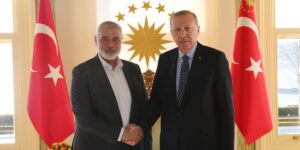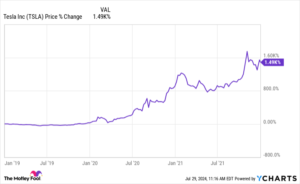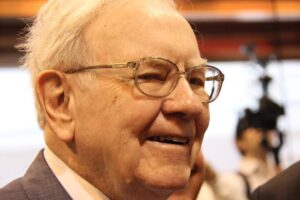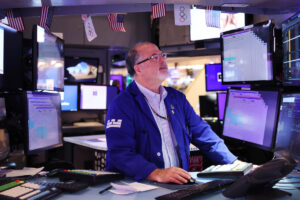Americans, Russian assassin freed in biggest post-Cold War prisoner swap
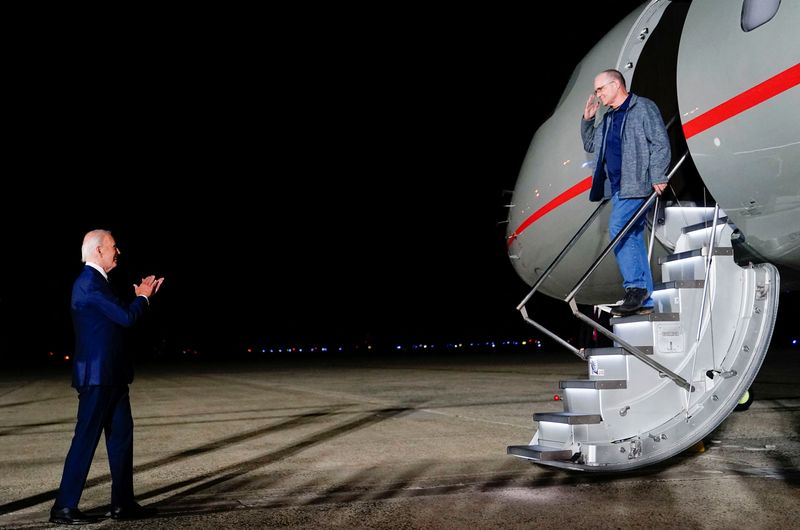
By Andrew Osborn, Filipp Lebedev, Lucy Papachristou, Trevor Hunnicutt and Andrea Shalal
MOSCOW/ANKARA/WASHINGTON (Reuters) -U.S. journalist Evan Gershkovich and ex-U.S. Marine Paul Whelan returned to the United States on Thursday, hours after being freed from Russian detention in the biggest prisoner exchange between the two countries since the Cold War.
The White House said it negotiated the trade with Russia, Germany and three other countries. The deal, worked on in secrecy for more than a year, involved 24 prisoners – 16 moving from Russia to the West and eight sent back to Russia from the West.
They included Vadim Krasikov, convicted of murdering an exiled dissident in Berlin, the German government said.
U.S. President Joe Biden hailed the deal as “a feat of diplomacy and friendship” and praised Washington’s allies for their “bold and brave decisions.”
Biden and Vice President Kamala Harris, buoyed by the occasion, greeted freed Americans Gershkovich, Whelan and journalist Alsu Kurmasheva, as well as Russian dissident and U.S. resident Vladimir Kara-Murza, as they arrived at Joint Base Andrews, Maryland, shortly before midnight (0400 GMT).
The president took off his lapel pin and gave it to Whelan as he got off the Bombardier (OTC:) Global 7500 aircraft.
The deal gives the Biden-Harris administration a marquee diplomatic success with the presidential campaign, pitting Harris against Republican former President Donald Trump, barely three months away.
Harris, poised to be the Democratic nominee after Biden dropped out of the race last month, praised his leadership for bringing together the complex prisoner swap, telling reporters on the tarmac it was a testament to American leadership.
Russian President Vladimir Putin met the prisoners returning to Russia on their arrival in Moscow, saying they would be given state awards.
The exchange also represents a victory for Putin, who had indicated he wanted Krasikov back. Their homeland “had not forgotten you for a moment,” he told the returnees to Russia.
Krasikov is a colonel in the Russian FSB security service who was serving a life sentence for murdering an exiled Chechen-Georgian dissident in a Berlin park.
CRITICS FEAR ‘DANGEROUS MESSAGE’
The multi-country deal appeared to be a one-time exchange that does not reset the antagonistic U.S.-Russia relationship, which has deteriorated sharply since Russia’s 2022 invasion of Ukraine.
U.S. deputy national security adviser Jon Finer said Washington-Moscow ties remain “in a very difficult place” despite the swap. “There was no trust involved in this relationship or negotiation,” Finer told broadcaster CNN.
Critics said freeing Russians convicted of serious crimes could encourage more hostage-taking by U.S. foes.
“I remain concerned that continuing to trade innocent Americans for actual Russian criminals held in the U.S. and elsewhere sends a dangerous message to Putin that only encourages further hostage-taking by his regime,” Michael McCaul, the Republican chair of the U.S. House Foreign Affairs Committee, said in a statement.
Trump, who said he did not have details of the swap, asked whether “murderers, killers, or thugs” were released. “Just curious because we never make good deals, at anything, but especially hostage swaps,” the presidential nominee said on social media.
Also involved in the deal were Belarus, Norway, Poland and Slovenia. Turkey coordinated the exchange.
The Kremlin said in a statement its decision to pardon and free prisoners “was made with the aim of returning Russian citizens detained and imprisoned in foreign countries.”
The last major exchange between the United States and Russia, in 2010, involved 14 prisoners.
The two countries had a high-profile exchange in December 2022, swapping U.S. basketball star Brittney Griner – sentenced to nine years for vape cartridges containing cannabis oil in her luggage – for arms dealer Viktor Bout, who was serving a 25-year sentence.
EMOTIONAL REUNIONS
In the West, the dissidents are seen by governments and activists as wrongfully detained political prisoners. All have, for different reasons, been designated by Moscow as dangerous extremists.
Among the Westerners freed, Gershkovich, a Wall Street Journal reporter, was accused of collecting sensitive military information for the CIA, a charge he and the newspaper denied.
The White House posted an emotional two-minute video of the moment the families of the U.S.-bound detainees spoke to their loved ones by phone from the Oval Office.
“This is Momma. Do you hear me? It’s your mom,” Gershkovich’s mother tells her son in the clip, posted on Biden’s social media account on the X platform.
Hours later, Gershkovich scooped her up and lifted her in the air as they met on the tarmac while other family members cheered for joy.
Whelan, the former marine, was serving a 16-year sentence in a Russian penal colony on espionage charges that he denied.
Rico Krieger, a German, had been sentenced to death in Belarus on terrorism charges. He was pardoned by President Alexander Lukashenko, a close Putin ally, before being freed.
Also released was Kurmasheva, a Russian-American journalist sentenced to 6-1/2 years in prison on July 19, the same day as Gershkovich, as well as Kara-Murza, who was serving 25 years for treason after saying Putin was bombing Ukrainian homes, hospitals and schools.
Released with them were human rights activist Oleg Orlov and Russian opposition politician Ilya Yashin.
Many of those freed had worked with Alexei Navalny, Russia’s leading opposition figure who died in unclear circumstances in an Arctic penal colony in February.
Before his death, Navalny was meant to have been part of the exchange, said Biden’s national security adviser, Jake Sullivan.
A Slovenian court on Wednesday sentenced two Russians to time served for espionage and using fake identities and said they would be deported. Both were among those returned to Russia, according to an official U.S. list.

Also returned to Russia and released from the U.S. were Roman Seleznev and Vladislav Klyushin – both convicted of cyber crimes – and Vadim Konoshchenok.
Wall Street Journal Editor in Chief Emma Tucker posted an open letter on X, calling it a “joyous day.”



